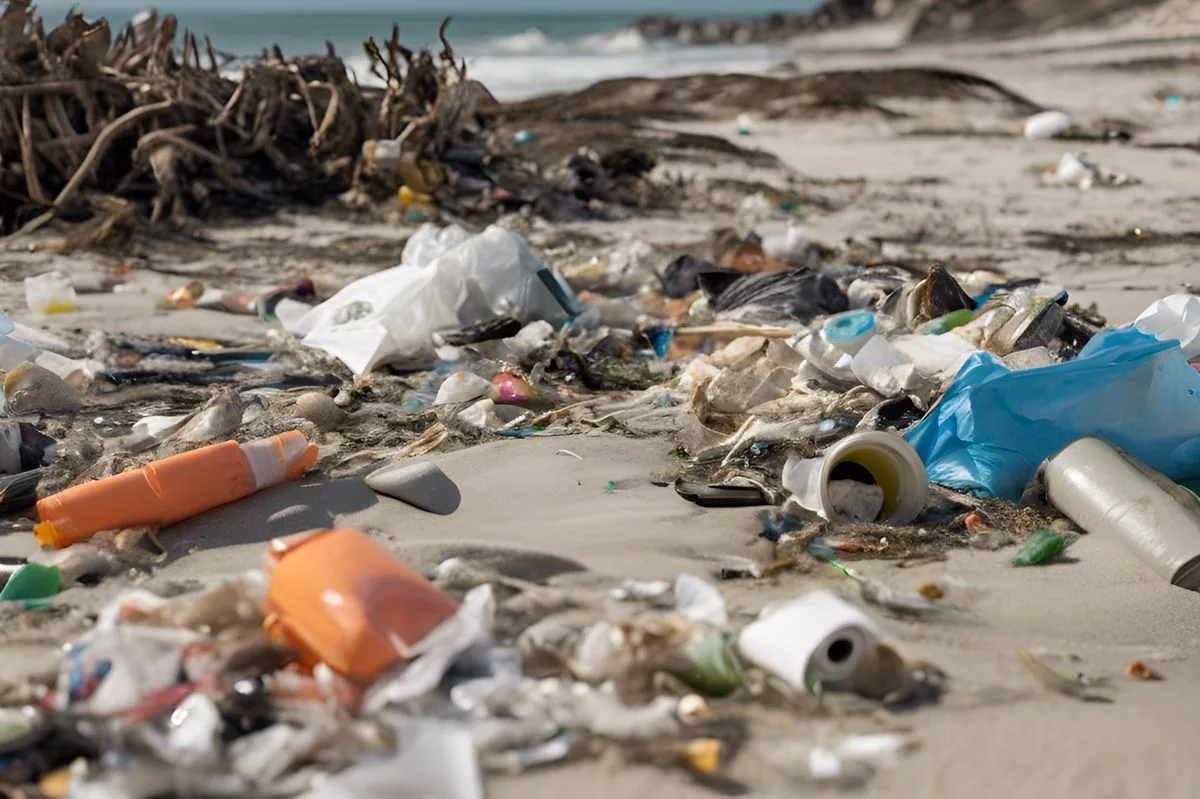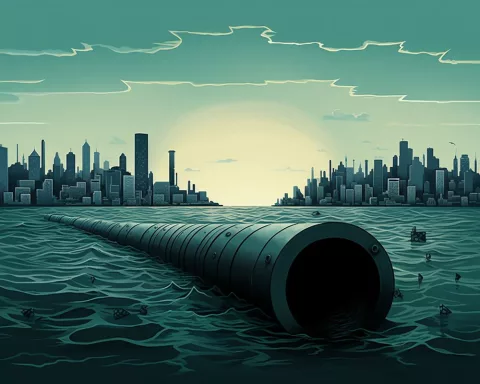Durban, South Africa, is facing neglect, pollution, and labor protests, resulting in potential health risks for its inhabitants and visitors. The city’s decline is due to a culmination of factors, including contamination of its popular beaches, continuous water shortages, and power interruptions. Prominent local figures, including Siv Ngesi and Gareth Cliff, have expressed their outrage at the city’s downfall, which serves as a warning for other cities to prioritize effective governance, environmental responsibility, and an informed and active populace.
What is the current state of Durban?
Durban, South Africa, is currently facing neglect, pollution, and labor protests, which have led to a potential health risk for its inhabitants and visitors. The city’s environmental crisis includes contamination of its popular beaches and continuous water shortages and power interruptions. Local figures, including Siv Ngesi and Gareth Cliff, have expressed their disappointment and outrage at the city’s downfall. Durban’s decline serves as a warning for other cities to prioritize effective governance, environmental responsibility, and informed and active populace.
The Current State of Durban
Situated within the confines of KwaZulu-Natal lies the city of Durban, South Africa, which has recently become a subject of concern for media figures, Sivuyile “Siv” Ngesi and Gareth Cliff. This once lively and bustling city now stands as a representation of neglect and disregard, mired in pollution, dilapidation, and labor protests sparking alarm among its inhabitants and visitors alike.
The downfall of Durban is not a sudden occurrence but rather a slow and agonizing occurrence over the past few years which has captured attention through social media and various reports. The condition of the city took a drastic turn recently when municipal workers initiated a strike, transforming the streets of Durban into a potential health risk, as brought to light by Sunday Times. This fortnight-long protest resulted in accumulated waste remaining uncollected, heightening the troubles of the city, which was already grappling with continuous water shortages and power interruptions.
Environmental Crisis and its Effects
However, the labor strikes are not the only factors contributing to the degradation of Durban. In September of the previous year, IOL highlighted that a number of Durban’s popular beaches exhibited alarmingly elevated levels of E.coli bacteria, suggesting contamination by animal feces or sewage. The year 2022 witnessed the closure of several city beaches due to this level of contamination, which further escalated the health risk, as ingestion of such polluted water could potentially lead to serious illnesses.
Prominent local figures have vocalized their rage at this environmental catastrophe. Radio and TV star, Bridget Masinga, voiced her disappointment about the pollution levels in Durban over the past year. She shared her adverse experiences filming around the city, depicting it as cluttered and shabby, a stark contrast to the city she recollects from 15 to 20 years ago.
Celebrity Outrage
In a similar vein, Siv Ngesi, a renowned actor, comedian, and model, communicated his dissatisfaction with Durban’s state on his social media platform. Drawing a comparison between Durban, with its ideal weather and location, and the potential splendor and prosperity of Miami, he expressed his shock at the city’s downfall.
Ngesi’s post on social media led to a flurry of responses from the online community. Among these, author and podcaster Penuel Mlotshwa outlined what he identified as the reasons behind Durban’s current status, such as poor governance, uninformed voters, talent drain, violence, natural calamities, the sale of ports, inadequate service provision, and corruption.
Moreover, another media personality, Gareth Cliff, made a disheartening comparison of Durban to Mogadishu, the capital of Somalia. Once a cultural hotspot known for its nightlife and thriving arts scene, Mogadishu’s reputation has been marred by two decades of civil conflict, leaving much of the city in ruins. His comparison draws a bleak image of Durban’s current predicament.
Concluding Remarks
In summary, the present-day dilemma of Durban is a culmination of various factors that have led to its degradation. The city that was once an effervescent and thriving destination now mirrors neglect and environmental dilapidation. Durban’s decline serves as a warning for other cities, emphasizing the importance of effective governance, sufficient infrastructure, environmental responsibility, and the duties of an informed and active populace.
1. What is the current state of Durban?
Durban is currently facing neglect, pollution, and labor protests, resulting in potential health risks for its inhabitants and visitors. The city’s decline is due to a culmination of factors, including contamination of its popular beaches, continuous water shortages, and power interruptions.
2. What are some of the environmental crises affecting Durban?
Durban’s environmental crisis includes contamination of its popular beaches and continuous water shortages and power interruptions. In September of the previous year, a number of Durban’s popular beaches exhibited alarmingly elevated levels of E.coli bacteria, suggesting contamination by animal feces or sewage. This has resulted in the closure of several city beaches due to the potential health risk.
3. Who are some of the local figures speaking out against Durban’s decline?
Prominent local figures, including Siv Ngesi, Gareth Cliff, Bridget Masinga, and Penuel Mlotshwa, have expressed their disappointment and outrage at the city’s downfall. They have vocalized their concerns about pollution levels, poor governance, and other factors contributing to Durban’s current state.
4. What caused the recent labor protests in Durban?
The current labor protests in Durban are related to a strike initiated by municipal workers. This strike resulted in accumulated waste remaining uncollected, heightening the troubles of the city, which was already grappling with continuous water shortages and power interruptions.
5. What can other cities learn from Durban’s decline?
Durban’s decline serves as a warning for other cities to prioritize effective governance, sufficient infrastructure, environmental responsibility, and the duties of an informed and active populace. Other cities can learn from the factors that have contributed to Durban’s decline and take steps to avoid similar issues.
6. Is there any hope for Durban’s future?
While Durban’s current state is concerning, there is still hope for its future. The city’s decline has brought attention to the need for change, and efforts are being made to address the issues. By prioritizing effective governance, sufficient infrastructure, and environmental responsibility, Durban can work towards a better future.












